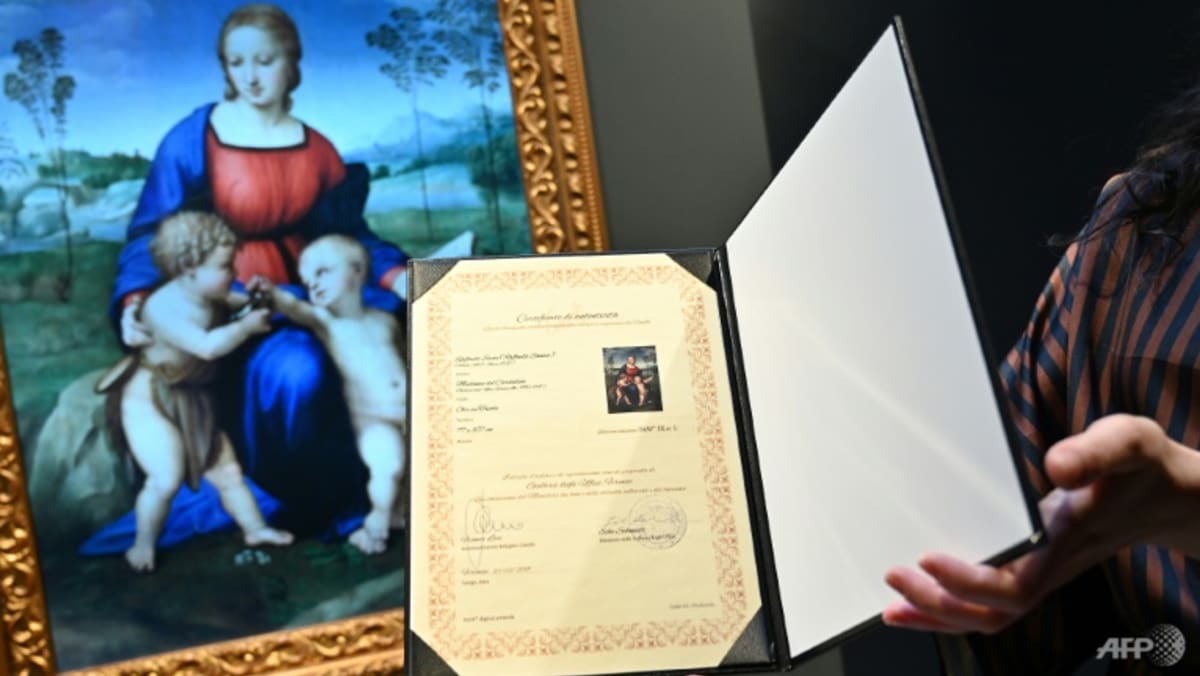
‘COMPLEX AND UNREGULATED’
Thirteen Italian museums recently signed deals with Cinello, a firm that sells limited edition digital reproductions, to offer ownership of digital replicas of masterworks.
The buyer gets a unique, high-resolution digital copy to project onto a screen and a certificate from the museum, which gets half the proceeds.
The company held a splashy London show in February displaying digitised works by Renaissance masters including Raphael, Leonardo and Caravaggio. It has since sold a handful of them.
But the Italian culture ministry was reportedly irked that a replica of Michelangelo’s “Doni Tondo” sold for around 240,000 euros but Florence’s Uffizi gallery got less than a third of the proceeds.
A spokesman for the ministry was quoted in several outlets last month as saying the issue was “complex and unregulated” and asked museums not to sign any new contracts around NFTs.
Cinello boss Francesco Losi was not pleased with the characterisation, telling AFP: “We don’t sell NFTs.”
Buyers can ask for an NFT to go with their image, but the firm said they had their own patented system to secure ownership, which they call DAW.
MIXED BLESSING
Cinello said it had digitised more than 200 works and its sales had generated 296,000 euros in extra revenue for Italian museums.
But the firm’s difficulties in Italy underline the mixed blessing of NFTs – they bring publicity but also suspicion.
The NFT sector – which covers anything from avatars in computer games to million-dollar cartoon apes – is replete with scams, counterfeit works, thefts and wash trading.
Losi said he was well aware that NFTs could be used “in the wrong way” and was unsure what future they had in the art world.
Anaida Schneider stressed that her project was protected by law in Liechtenstein, the tiny principality being among the first jurisdictions to pass a law regulating blockchain companies in 2019.
Beyond that, she said her insurance would cover damage to the artworks and she had also factored in the possibility that the paintings would fall in value, though she declined to give exact details.
“I hope it never happens,” she said. “For me, it’s very important to put this idea in the market.”
This news is republished from another source. You can check the original article here



